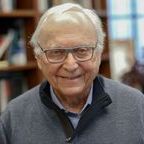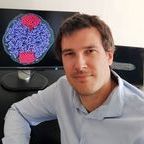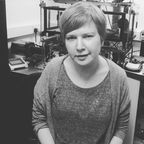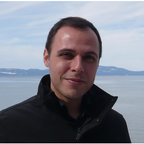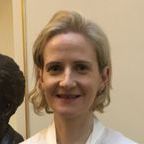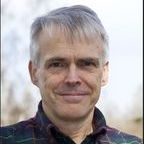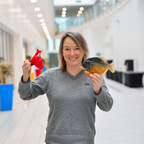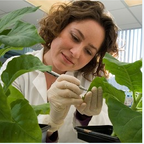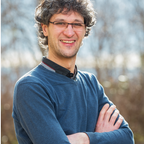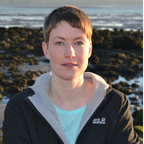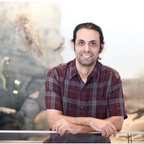Cell
C1 - Local and Higher Order Nuclear Structural Organization and Dynamics
Session Length
3 days and 1 half day (Tuesday 4th-Thursday 6th, and Friday 7th July (AM))
Session Description
The field of nuclear structure and epigenetics is rapidly developing. Great progress has been made in identifying key components and interactors and in understanding processes of gene regulation in development and disease.
This session will bring together animal, plant and fungal biologists thereby providing opportunity for the kind of advances that result from comparative biology as well as technique sharing and advice.
The Session will be broken down into several subtopics:
1) Historical Keynote Talk on the Nuclear Envelope and Nuclear Organisation Across a Range of Species
2) Nuclear Envelope in Evolution
3) Nuclear Mechanics
4) Genome Reorganisation in Adaptive Responses and Cell Division
5) 3D Genome Organisation and How It Translates to Transcriptional Control
6) Local Chromatin Folding, Epigenetics and Phase Separation 7) Computational Modeling of Nuclear Structure and Genome Organisation
Session Aims & Objectives
1) Bringing together leading researchers, PhD students and ECRs to inspire future work and establish new collaborations across phyla and across disciplines.
2) Presenting advanced techniques in the study of nuclear structure and function in animals, plants and fungi to equip and inform future work.
3) Effecting uniform standards in methodology for comparing aspects of genome organisation across phyla.
4) Providing a detailed overview of current knowledge in the field for non-specialists.
C2 - Big Data Biology
Session Length
1 day (Thursday 6th July)
Session Description
Modern experimental biology generates a vast amount of data on many levels of organisation: from genes, proteins, to the organismal and ecological scales. The sheer amount and complexity reflected within this information requires a new standards and approaches on how to harvest, analyse, manipulate and interpret biological big data. This session aims to discuss the opportunities, challenges and potential pitfalls that come with working with Big Data Biology. In particular, we are aware that to progress our understanding and enable predictions, we also need to link the data analysis to underlying mechanisms through mathematical and computational modelling. Both these aspects – working with data and being able to analysis data meaningfully – will be explored in this session.
To achieve an open dialogue in the community and to showcase diverse case-studies, we have invited scientists from animal and plant biology, asking questions of developmental, evolutionary and ecological nature. What unites all talks is the Systems Biology approach in integrating multi-level or high-throughput data in achieving new biological insights.
We hope to provoke new ideas and discussions on how to approach (and how not to approach) experimental biology in the era of data-intensive possibilities.
C3 - Cell cycle control in non-mammalian systems.
Session Length
1 day and 1 half day (Wednesday 5th and Thursday 6th (AM))
ACPO1 - 100 years of SEB Animal
Session Length
Animal Section: 2 days (Tuesday 4th-Wednesday 5th July)
Session Description
As we look back on 100 years of the SEB, this special session aims to celebrate the rich history of experimental animal biology that has been a hallmark of the society. The session will provide homage to the science and scientists that have paved the way within central topics of comparative physiology including, biomechanics, ecophysiology, cardio-respiratory physiology, neuro-biology, temperature physiology, osmoregulation, endocrinology and conservation physiology. All presentations will be delivered by outstanding invited speakers who will aim to connect the historical legacy of their research topic to their current research programs that exemplify state of the art experimental animal biology.
Session Aims and Objectives
The goals of this session are: i) to provide a historical perspective on some key topics of experimental animal biology; ii) to showcase its legacy in terms of the outstanding related research that is currently being carried out by modern leaders in the respective field.
ACPO1 - 100 years of SEB Cell
Session Length
Cell Section: 1 half day (Tuesday 4th (AM))
Session Description
This session will review the history of the contribution of the SEB in three areas of Cell Biology- Cell Cycles, Endomembrane and Cytoskeleton and Structure and Dynamics of the Nucleus. The talks will review the way in which SEB members have contributed to the development of the fields and will aim to bring this history up to date.
ACPO1 - 100 years of SEB Plant
Session Length
Plant Section: 1 day (Friday 7th July)
Session Description
These talks will detail advancements in plant biology within the SEB by outstanding researchers that have made an enduring impact on our understanding of plants, especially within the fields of photosynthesis and plant development. This session also aims to highlight the contributions of society members throughout the history of the SEB, offering perspectives on innovations in plant science over the past century of the SEB while also looking to the future and what lies ahead.
Session Aims and Objectives
- To detail advancements in plant biology within the history of the SEB as well as identify future challenges, questions, and ideas within the field of plant biology.
- To commemorate the SEB’s rich history in plant science research and to generate an opportunity for attendees and presented to exchange research perspectives in plant biology.
AC1 - Thermoregulatory and metabolic adaptations in a changing world
Session Length
1 day (Thursday 6th July)
Session Description
This session will aim at presenting the latest discoveries and findings in the field of thermoregulation responses of animals enabling them to cope with environmental fluctuations. The session will also cover the ecological evolutionary implications of thermal responses of species living in a seasonal world. The one-day session aims to highlight the broad scope of thermal and metabolic adaptations of cells, mammals, birds, amphibians, reptiles, and insects.
Session Aims & Objectives
The following aims and objectives will be addressed at the session:
1. Exposing, developing, and discussing results, ideas and concepts on thermoregulation and adaptive thermal and energetic responses used by species to face environmental challenges.
2. Detailing the implications of the nature and the limits of the thermal and energetic responses in the context of climate change and global warming.
3. Exposing the use of various techniques and methods to assess thermoregulation at both the whole-body and tissue/cellular levels.
CP1 - General cell and plant biology
Session Length
Poster session (evening of Wednesday 5th July)
The Centinary conference will take place at the Edinburgh International Conference Centre The Exchange, 150 Morrison St, Edinburgh EH3 8EE

Visit Scotland supporter of the Centenary conference







